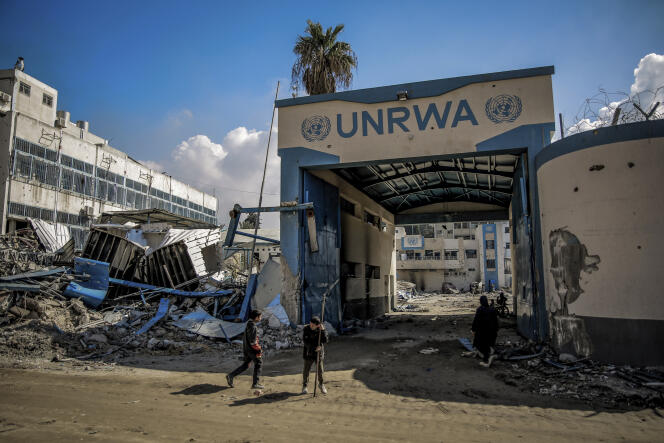


The first concrete repercussion of a major independent review of UNRWA: Germany, one of the largest donors to this UN agency for Palestinian refugees, decided to resume its contributions to the organization, which had been frozen after Israel accused it of being infiltrated by Hamas. The audit published on Monday, April 22, headed by former French foreign minister Catherine Colonna, largely cleared the agency, while suggesting ways to strengthen its neutrality. Two days after its presentation, Berlin announced on Wednesday its intention to resume aid and praised the "vital role" played by UNRWA, a major humanitarian player in the Gaza Strip, which has been bombarded for over six months by the Israeli army.
The federal government intends to coordinate with its "closest international partners to release additional funds" for the agency. "As part of the reforms recommended by the audit, the federal government will soon continue its cooperation with UNRWA in Gaza," added a ministerial statement. Although the timetable remains unclear, this turnaround is a relief for the agency. Germany had become its second-largest donor after significantly increasing its aid from 2018. Berlin's assistance helped ease the crisis caused by then president Donald Trump's order to halt US funding from 2018 to 2021.
But at the end of January, Germany was one of 18 mainly Western donors to withdraw in record time. Philippe Lazzarini, the organization's head, had just revealed that 12 of UNRWA's 13,000 employees in Gaza were accused by Israel of having participated in the massacre committed by Hamas on October 7, 2023. Those who were still alive, 10 out of 12, were dismissed on the spot, said the head of the agency. Despite these immediate sanctions, imposed without Israel even providing evidence to support its allegations, donors have abandoned UNRWA.
It was an absolute disaster for the agency. It found itself with $450 million (over €419 million) in funding frozen, equivalent to more than half its overall budget for 2024. This budget supports the operation of its schools and clinics for the six million Palestinian refugees in Lebanon, Syria, Jordan and the Palestinian territories. It's no longer a question of making up for chronic underfunding, but of ensuring the organization's survival at the most difficult of times: Gaza, where the death toll currently stands at over 26,000, is facing a humanitarian catastrophe.
Following the publication of the review, calls for renewed support for UNRWA came from Norway, which stood by the organization during the storm, and from the European Union. Smaller donors, such as Romania and the Baltic States, are also expected to return. Major donors such as Sweden, Canada, Australia and Japan had already backed out before the audit was published. One of the challenges is to win back the support of the UK, but under the leadership of Conservative Prime Minister Rishi Sunak, it may align itself with Washington's position: the US, Israel's historic donor and staunchest ally, has voted to ban all funding until March 2025.
You have 56.04% of this article left to read. The rest is for subscribers only.
